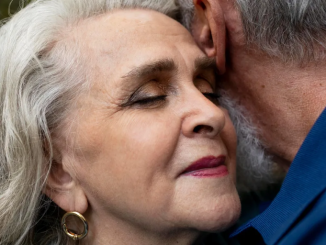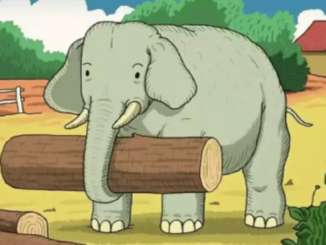
A lot of big, tragic and important things have happened to this wonderful country of ours since April 2014. None of which I have covered. I was too busy writing about hungover parenting, ancient philosophy and my dog Colin.
Out of the 536 columns I have written, 27 were about that guy. Far too few. He is such a good boy, he deserves an article a week.
Today is the end of an era for me, and whenever these final events pop up in our lives, we can’t help but think about the ultimate end.
Everything we do, we will one day do for the last time. That’s why you have to enjoy things while they are around. It’s not just big events like leaving a job, house or loved one either. Whatever moment you happen to be in now, you will never get it back, and you don’t know how many more you have.
Everything we do in life, from eating pizza to spending time with the people we love, to driving, writing, drinking or breathing, we will one day experience for the final time. It might happen tomorrow. This can be either a depressing or an inspiring thought, depending on how you look at it.
A few years back in this column, I interviewed professor of philosophy William B Irvine, of Wright State University, Ohio, on this very topic. He put it this way on a Zoom call: “Recognition of the impermanence of everything in life can invest the things we do with a significance and intensity that would otherwise be absent. The only way we can be truly alive is if we make it our business periodically to entertain thoughts of the end.”
Today’s column is very meaningful to me because it is my last. Like the last night with a lover before she goes overseas. And just like a lover, there have been some half-arsed efforts put in from me over the years. Last week, for example, I spent 750 words moaning about how bad my cricket team is. But the truth is that any of my columns could have been the final. If I had reminded myself every week for the past 10 years that the end is inevitable, I may have been more grateful for having a column and appreciated writing them all as much as I am this one.
While everything we do could have more meaning with a focus on finitude, some things are inherently more worthwhile than others. There is no doubt my column “The pros and cons of wearing Speedos” from November 2022 was less meaningful than most things in this world. That was a waste of everyone’s time. So, if we only have so much time, how do we pick the best things to do?
Well, Oliver Burkeman, the author of Four Thousand Weeks – Time Management For Mortals, suggested this to me in a 2022 column: “Ask yourself, does this choice enlarge me? You usually know on some unspoken level if it does. That’s a good way to distinguish between options.”
With that in mind, I don’t feel great about my 2018 article on “New Zealand’s best hole”. That didn’t enlarge anyone.
There will be people reading this column right now who have loved my writing in the Herald and are sad to see it end. Others will have hated it and are glad to see me go. Many won’t have any opinion at all. But for those in the first camp, I have good news. I have a book coming out on May 28 called A Life Less Punishing – 13 Ways To Love The Life You Got (Allen and Unwin Book Publishers). It’s a deep dive into the history, philosophy and science of not wasting our time lost in anger, loneliness, humiliation, stress, fear, boredom and all the other ways we find to not enjoy perfectly good lives. It’s available for pre-order right now (google it if you’re interested).
A Life Less Punishing took me two years to write and is equivalent in words to 100 of these columns. Which would be a complete nightmare for those in the hate camp, but as I say, great news for those who want more.
Anyway, thanks to the Herald for having me, thanks to the lovely people who make an effort to say nice things to me about my column nearly every day and thanks to the universe for every single second we get.
Bless!
Woman takes sneak photo behind old man: Reveals what waitress is doing with his food

It’s a common belief that today’s kids lack regard for their elders. That is absolutely true in some cases; young people ought to be more appreciative of those who contributed to the creation of our nation as we know it now.
It’s not always the case, though. Young people engage in a variety of daily activities that are deserving of greater attention.
One such tale is this one. My goal is that we can assist in its propagation such that it creates pond ripples that eventually impact a great deal of people.
In 2018, Evoni Williams, who was then eighteen years old, performed her regular shift behind a counter at Waffle House in Houston.
It was there that she saw an old man who needed an oxygen tank to assist him. He was having trouble slicing his food. Evoni tried to assist the elderly man, whose hands were not functioning as effectively as they used to.
https://googleads.g.doubleclick.net/pagead/ads?client=ca-pub-3764810839868565&output=html&h=183&slotname=8851483697&adk=1904876559&adf=3233839100&pi=t.ma~as.8851483697&w=730&abgtt=6&fwrn=4&lmt=1723909454&rafmt=11&format=730×183&url=https%3A%2F%2Favokaddo.com%2F2024%2F07%2F16%2Fwoman-sneaks-a-picture-behind-the-elderly-guy-revealing-the-waitresss-actions-with-his-food%2F%3Ffbclid%3DIwY2xjawEtpJ5leHRuA2FlbQIxMAABHdDD0KpqcYNGcCEvA3Eb_zxdmTUHD-RsdsczM82Sz2OfC5F8VEap8I8Pxw_aem_f-3W1UqCOYq2akv06Xz5Kg&wgl=1&uach=WyJXaW5kb3dzIiwiMC4zLjAiLCJ4ODYiLCIiLCIxMDkuMC41NDE0LjE2OCIsbnVsbCwwLG51bGwsIjY0IixbWyJOb3RfQSBCcmFuZCIsIjk5LjAuMC4wIl0sWyJHb29nbGUgQ2hyb21lIiwiMTA5LjAuNTQxNC4xNjgiXSxbIkNocm9taXVtIiwiMTA5LjAuNTQxNC4xNjgiXV0sMF0.&dt=1723909454436&bpp=1&bdt=351&idt=293&shv=r20240814&mjsv=m202408150101&ptt=9&saldr=aa&abxe=1&cookie=ID%3Dd6f422181fa8e320%3AT%3D1712754368%3ART%3D1723909019%3AS%3DALNI_MbQ8K8Uz_tQiOWk9_ho73iGWbUvXg&gpic=UID%3D00000de663175333%3AT%3D1712754368%3ART%3D1723909019%3AS%3DALNI_MZzkvLBsYSBf99BTmrLqXAWredf6A&eo_id_str=ID%3D880422cb866d8cdc%3AT%3D1712754368%3ART%3D1723909019%3AS%3DAA-AfjYIkHBaiiV25sK_LhuhTK3y&prev_fmts=0x0%2C1100x280%2C730x183&nras=1&correlator=8096481570169&frm=20&pv=1&rplot=4&u_tz=420&u_his=1&u_h=768&u_w=1360&u_ah=728&u_aw=1360&u_cd=24&u_sd=0.8&dmc=8&adx=131&ady=1986&biw=1362&bih=727&scr_x=0&scr_y=0&eid=44759876%2C44759927%2C44759842%2C95331688%2C95331833%2C95334528%2C95334828%2C95337587%2C95337868%2C31086220%2C31086142%2C95339224%2C21065725&oid=2&pvsid=45687968984165&tmod=1186113872&uas=0&nvt=1&ref=https%3A%2F%2Fl.facebook.com%2F&fc=1920&brdim=168%2C26%2C168%2C26%2C1360%2C0%2C1123%2C702%2C1383%2C727&vis=1&rsz=%7C%7CopeEbr%7C&abl=CS&pfx=0&fu=128&bc=31&bz=0.81&psd=W251bGwsbnVsbCxudWxsLDNd&ifi=4&uci=a!4&btvi=2&fsb=1&dtd=306
A customer named Laura Wolf wrote, “She took his plate and started cutting up his ham without hesitation.”
https://googleads.g.doubleclick.net/pagead/ads?client=ca-pub-3764810839868565&output=html&h=183&slotname=3197500636&adk=180293162&adf=1515654807&pi=t.ma~as.3197500636&w=730&abgtt=6&fwrn=4&lmt=1723909454&rafmt=11&format=730×183&url=https%3A%2F%2Favokaddo.com%2F2024%2F07%2F16%2Fwoman-sneaks-a-picture-behind-the-elderly-guy-revealing-the-waitresss-actions-with-his-food%2F%3Ffbclid%3DIwY2xjawEtpJ5leHRuA2FlbQIxMAABHdDD0KpqcYNGcCEvA3Eb_zxdmTUHD-RsdsczM82Sz2OfC5F8VEap8I8Pxw_aem_f-3W1UqCOYq2akv06Xz5Kg&wgl=1&uach=WyJXaW5kb3dzIiwiMC4zLjAiLCJ4ODYiLCIiLCIxMDkuMC41NDE0LjE2OCIsbnVsbCwwLG51bGwsIjY0IixbWyJOb3RfQSBCcmFuZCIsIjk5LjAuMC4wIl0sWyJHb29nbGUgQ2hyb21lIiwiMTA5LjAuNTQxNC4xNjgiXSxbIkNocm9taXVtIiwiMTA5LjAuNTQxNC4xNjgiXV0sMF0.&dt=1723909454437&bpp=1&bdt=353&idt=408&shv=r20240814&mjsv=m202408150101&ptt=9&saldr=aa&abxe=1&cookie=ID%3Dd6f422181fa8e320%3AT%3D1712754368%3ART%3D1723909019%3AS%3DALNI_MbQ8K8Uz_tQiOWk9_ho73iGWbUvXg&gpic=UID%3D00000de663175333%3AT%3D1712754368%3ART%3D1723909019%3AS%3DALNI_MZzkvLBsYSBf99BTmrLqXAWredf6A&eo_id_str=ID%3D880422cb866d8cdc%3AT%3D1712754368%3ART%3D1723909019%3AS%3DAA-AfjYIkHBaiiV25sK_LhuhTK3y&prev_fmts=0x0%2C1100x280%2C730x183%2C730x183&nras=1&correlator=8096481570169&frm=20&pv=1&rplot=4&u_tz=420&u_his=1&u_h=768&u_w=1360&u_ah=728&u_aw=1360&u_cd=24&u_sd=0.8&dmc=8&adx=131&ady=2275&biw=1362&bih=727&scr_x=0&scr_y=0&eid=44759876%2C44759927%2C44759842%2C95331688%2C95331833%2C95334528%2C95334828%2C95337587%2C95337868%2C31086220%2C31086142%2C95339224%2C21065725&oid=2&pvsid=45687968984165&tmod=1186113872&uas=0&nvt=1&ref=https%3A%2F%2Fl.facebook.com%2F&fc=1920&brdim=168%2C26%2C168%2C26%2C1360%2C0%2C1123%2C702%2C1383%2C727&vis=1&rsz=%7C%7CopeEbr%7C&abl=CS&pfx=0&fu=128&bc=31&bz=0.81&psd=W251bGwsbnVsbCxudWxsLDNd&ifi=5&uci=a!5&btvi=3&fsb=1&dtd=416
She posted a photo of the incident to Facebook since it moved her so much.
Wolf went on, “To him, this may seem small, but I’m sure it was huge.”
“As everything in this world looks so terrible, I’m thankful to have observed this gesture of love and caring at the start of my day.”
https://googleads.g.doubleclick.net/pagead/ads?client=ca-pub-3764810839868565&output=html&h=183&slotname=2267562348&adk=1820381780&adf=4188297211&pi=t.ma~as.2267562348&w=730&abgtt=6&fwrn=4&lmt=1723909454&rafmt=11&format=730×183&url=https%3A%2F%2Favokaddo.com%2F2024%2F07%2F16%2Fwoman-sneaks-a-picture-behind-the-elderly-guy-revealing-the-waitresss-actions-with-his-food%2F%3Ffbclid%3DIwY2xjawEtpJ5leHRuA2FlbQIxMAABHdDD0KpqcYNGcCEvA3Eb_zxdmTUHD-RsdsczM82Sz2OfC5F8VEap8I8Pxw_aem_f-3W1UqCOYq2akv06Xz5Kg&wgl=1&uach=WyJXaW5kb3dzIiwiMC4zLjAiLCJ4ODYiLCIiLCIxMDkuMC41NDE0LjE2OCIsbnVsbCwwLG51bGwsIjY0IixbWyJOb3RfQSBCcmFuZCIsIjk5LjAuMC4wIl0sWyJHb29nbGUgQ2hyb21lIiwiMTA5LjAuNTQxNC4xNjgiXSxbIkNocm9taXVtIiwiMTA5LjAuNTQxNC4xNjgiXV0sMF0.&dt=1723909454438&bpp=1&bdt=353&idt=441&shv=r20240814&mjsv=m202408150101&ptt=9&saldr=aa&abxe=1&cookie=ID%3Dd6f422181fa8e320%3AT%3D1712754368%3ART%3D1723909019%3AS%3DALNI_MbQ8K8Uz_tQiOWk9_ho73iGWbUvXg&gpic=UID%3D00000de663175333%3AT%3D1712754368%3ART%3D1723909019%3AS%3DALNI_MZzkvLBsYSBf99BTmrLqXAWredf6A&eo_id_str=ID%3D880422cb866d8cdc%3AT%3D1712754368%3ART%3D1723909019%3AS%3DAA-AfjYIkHBaiiV25sK_LhuhTK3y&prev_fmts=0x0%2C1100x280%2C730x183%2C730x183%2C730x183&nras=1&correlator=8096481570169&frm=20&pv=1&rplot=4&u_tz=420&u_his=1&u_h=768&u_w=1360&u_ah=728&u_aw=1360&u_cd=24&u_sd=0.8&dmc=8&adx=131&ady=2672&biw=1362&bih=727&scr_x=0&scr_y=0&eid=44759876%2C44759927%2C44759842%2C95331688%2C95331833%2C95334528%2C95334828%2C95337587%2C95337868%2C31086220%2C31086142%2C95339224%2C21065725&oid=2&pvsid=45687968984165&tmod=1186113872&uas=0&nvt=1&ref=https%3A%2F%2Fl.facebook.com%2F&fc=1920&brdim=168%2C26%2C168%2C26%2C1360%2C0%2C1123%2C702%2C1383%2C727&vis=1&rsz=%7C%7CopeEbr%7C&abl=CS&pfx=0&fu=128&bc=31&bz=0.81&psd=W251bGwsbnVsbCxudWxsLDNd&ifi=6&uci=a!6&btvi=4&fsb=1&dtd=462
US news sites report that over 40,000 people have shared this act of kindness on Facebook, about a week after it was done.
Additionally, the Texas Southern University School quickly received the photo and reportedly extended an offer of a $16,000 scholarship to Evoni.
For Williams, who graduated from high school in May and has been working at Waffle House to raise money for college, it was a present that changed his entire life.
The kid claimed she didn’t think her behaviors were unusual, but she was honored to get the compliments and admiration.
Williams admitted to the Houston Chronicle, “I didn’t know the photo was taken until a couple hours later.”
The eighteen-year-old said it was clear she should be assisting the elderly man.
“It’s just something I would do for anybody, when I saw it.”
Such tales give one a great sense of warmth. Evoni, more exceptional people like you are needed in the world.
It’s fantastic that this kind deed resulted in a scholarship. Kindly post this narrative on Facebook. It will encourage more people to give to charity in their daily lives.



Leave a Reply